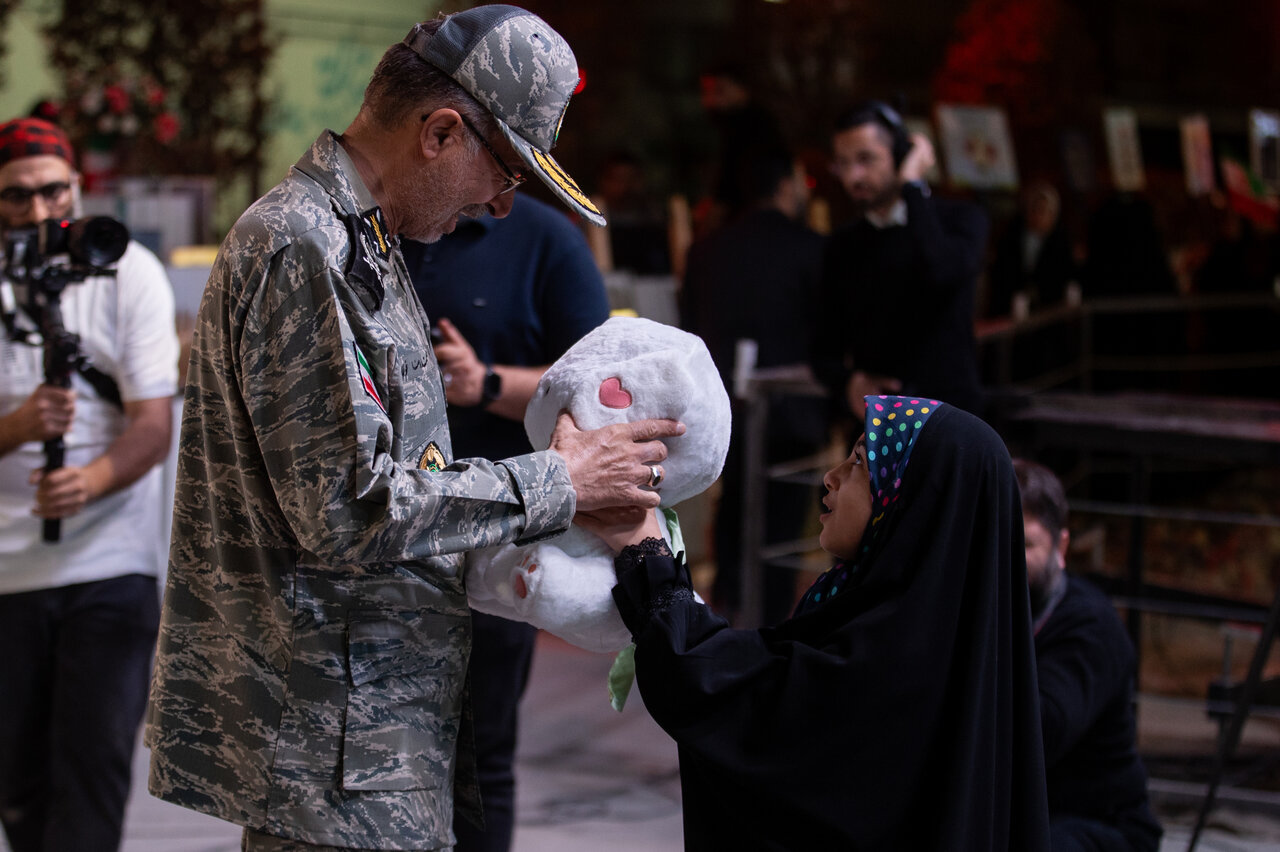'Well done, Iran' ceremony honors Armed Forces after war with Israel

TEHRAN – On Thursday evening, a crowd of Iranian citizens, predominantly women and children, gathered in Tehran's Haft-e-Tir Square for an event that saw hundreds of letters, artworks, and handicrafts, previously displayed in a gallery, presented to a representative of Iran's Armed Forces.
The pieces had been collected through a campaign called "Dastmarizad Iran," meaning "Well Done, Iran." Organized by the municipality’s department of women and family affairs, it served as a way for people to express their gratitude to soldiers and to honor those who lost their lives fighting the U.S.-Israeli aggression in June.
The evening began with a beautiful, silent moment. Singer Mahmoud Karimi’s voice filled the square with the patriotic song "Ey Iran." The crowd stood completely still. Children waved Iranian flags, with their small hands holding the colors high.
Komeil Khojasteh, a political analyst and scholar who also attended the event on Thursday, stated that such ceremonies demonstrate Iranian unity, even amidst disagreements and differences. "The fact that our people were thinking of the Armed Forces during the war and how they could thank them for their efforts shows that there is unity in the country, and that Iran becomes the foremost issue in times of crisis,” he explained. “Our people can overcome any challenge, even those planted by the enemy."
Across the square, reminders of the recent war were visible. A damaged ambulance, its windows cracked from the attacks, sat parked nearby. Beside it were a burnt swing and slide. But hope was also present. Behind a red curtain lay the handwritten letters, dolls, and handmade crafts that the women and children of Iran had prepared during the 12-day war, thinking of those who kept them safe, as well as the family members of the Armed Forces.
Five-year-old Raufa, was photographed giving roses to a soldier standing alert near the stage where speakers addressed the crowd. The soldier accepted the flowers and briefly patted Raufa's head before returning to his post. After exchanging a few words with him, Raufa rejoined her mother, who was sitting in the audience. When I asked her what she had told the soldier, Raufa replied, "I wanted to thank him for protecting me and my sister."
I also met a young artist whose painting was among those being presented to the Armed Forces representative. She had created a portrait of Martyr Amir Ali Hajizadeh, an IRGC general credited with a significant role in the impressive development of Iranian missiles. It was these missiles that ultimately compelled Israel and the U.S. to request a ceasefire, due to the precise and devastating destruction they inflicted in the occupied territories, as well as on the most important American military base in the region. At first glance, the portrait seemed to lack artistic detail. However, upon closer inspection, it became apparent that the artist had rendered the face using quotes and verses from the Quran. I asked her to explain the feelings behind her work. "If an artist could easily express what's in their heart, they wouldn't be an artist," she replied. "They wouldn't paint! There are some feelings you should gather by looking at art."
Among the many Quranic verses she had used was a well-known passage about martyrs: "Never say that those martyred in the cause of God are dead—in fact, they are alive! But you do not perceive it." Hajizadeh was assassinated by Israel in the initial days of the war. However, his missiles, and the capability to use them, remained.
The night ended with fireworks. As the sky lit up, the gifts were finally handed to the military representative, Brigadier General Mohammad Reza Fooladi. "The support is not one-sided. The military is able to fight the enemy because the people back it. Without the daily and generous expressions of love from the citizens, no soldier would be able to endure hardships," the general told the Tehran Times. "I want the Iranian nation to know that we are prepared. If the enemy dares strike again, there will be a far harsher response."
Leave a Comment